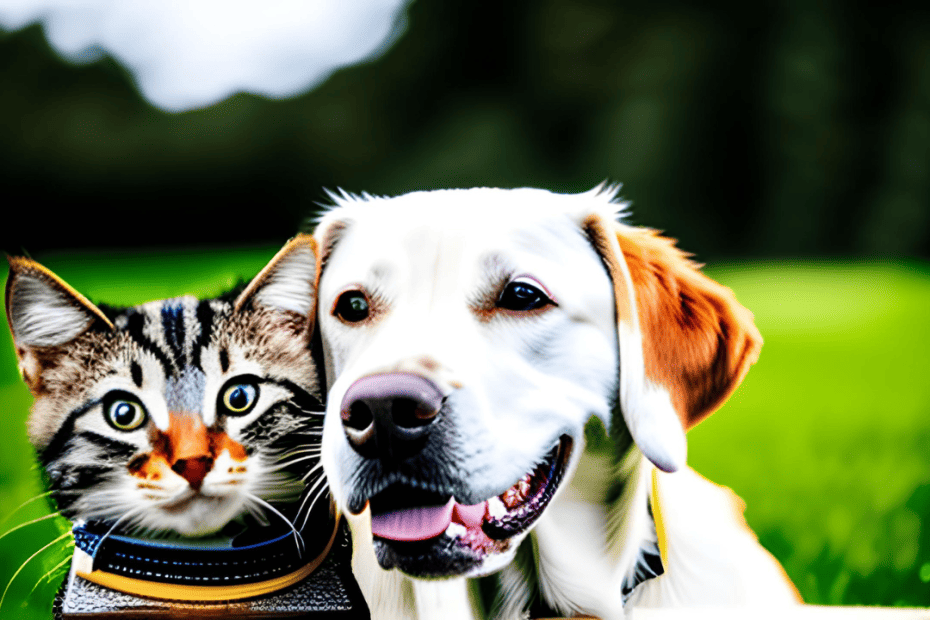Introduction: The Impact of Pets on Child Anxiety
As any parent of an anxious child knows, finding ways to soothe their worries and fears is paramount. In recent years, the role of pets in alleviating child anxiety has gained considerable attention. But when it comes to dogs and cats, which one is the ultimate anxiety soother?
The Unique Role of Pets in Child Anxiety Management
Pets can provide a sense of security and routine that is incredibly comforting for children grappling with anxiety. They offer a listening ear without judgment, provide a sense of responsibility, and their unconditional love can foster self-esteem.
The Therapeutic Benefits of Pets for Anxious Children
Interacting with pets has been shown to reduce cortisol levels, the hormone associated with stress, and boost serotonin, the “feel-good” hormone. But let’s break it down further and see how dogs and cats specifically can help.
Evaluating Dog and Cat Temperaments for Anxiety Relief
Dogs: The Loyal Anxiety Soothers
Dogs, often labeled as man’s best friend, are known for their loyalty and affection. They are intuitive creatures and can often sense when their human companions are distressed. Breeds like Golden Retrievers and Labradors are particularly known for their gentle and friendly nature.
Cats: The Independent Calm Providers
Cats, on the other hand, are independent creatures who can offer comfort without being overly demanding. Their purring has been scientifically proven to have a calming effect on the human brain, potentially reducing stress and anxiety.
Care and Maintenance: Dogs vs. Cats
The Maintenance Requirements of Dogs
Dogs, especially puppies, require a lot of care. They need regular exercise, feeding, grooming, and potty training. This might be overwhelming for some children, but for others, it can provide a constructive outlet for their anxiety.
The Low-Maintenance Nature of Cats
Cats are generally lower maintenance. They use a litter box for their needs and can be left alone for longer periods. This can make them a good choice for children who might feel overwhelmed by the care a dog requires.
Considering Child’s Age and Maturity in Dog vs. Cat Decision
Dogs and Older Children: A Match for Active Engagement
Older children or teenagers might enjoy the active engagement a dog provides. Walking and playing with the dog can be a great way for them to distract from their anxieties.
Cats and Younger Children: A Gentle Bond
Younger children might find the independent yet gentle nature of cats more manageable. The quieter engagement might also suit children with sensory sensitivities.
Allergies: A Significant Factor in the Dog vs. Cat Debate
Dog Allergies: Symptoms and Management
Dog allergies, typically triggered by dander, can cause symptoms like sneezing, itching, and watery eyes. This could potentially increase anxiety in children who are allergic.
Cat Allergies: Signs and Coping Mechanisms
Similarly, cat allergies can cause discomfort. However, hypoallergenic cat breeds are available that produce fewer allergens.
Emotional Connection: Dogs vs. Cats
The Deep Emotional Bond between Dogs and Children
Dogs often form a deep emotional bond with their owners and can be very expressive in their affection, which can be comforting for an anxious child.
The Quiet Emotional Connection between Cats and Kids
Cats might not show their affection as overtly as dogs, but they do form deep bonds with their human family. Their independent nature combined with moments of affection can be soothing.
Final Verdict: Dogs or Cats – Which is Better for Child Anxiety?
The Case for Dogs as Anxiety-Soothing Pets
Dogs can be excellent companions for children dealing with anxiety. Their loyalty, affection, and active nature can provide a distraction from anxious thoughts and offer comfort and companionship.
The Case for Cats as Anxiety-Easing Companions
Cats can also be great for children with anxiety. Their independent yet affectionate nature, combined with their low-maintenance care requirements, can provide a calming presence without overwhelming the child.
Conclusion: Making the Right Choice for Your Anxious Child
Ultimately, whether a dog or cat is better for a child with anxiety depends on the individual child’s needs, age, and personality. Both dogs and cats can offer emotional support, companionship, and a sense of responsibility that can help manage anxiety. By considering the factors above, you can make the best choice for your child and family.
FAQs
1. Are dogs or cats better for a child with anxiety?
It depends on the child. Dogs are often more interactive and require more care, which can be beneficial for some children. Cats are typically lower maintenance and can provide a calming presence.
2. Can a child be allergic to both dogs and cats?
Yes, it’s possible for a child to be allergic to both dogs and cats. Always consider potential allergies when choosing a pet.
3. Are there dog and cat breeds that are better for children with anxiety?
Yes, certain dog breeds like Golden Retrievers and Labradors are known for their calm and friendly nature. Similarly, some cat breeds, like Ragdolls, are known for their gentle demeanor.
4. How can pets help a child with anxiety?
Pets can provide a sense of security, routine, and companionship. Caring for a pet can also give a child a sense of responsibility and purpose.
5. What other factors should I consider when choosing a pet for my anxious child?
Consider the pet’s temperament, the care they require, the child’s age and maturity, and potential allergies.
